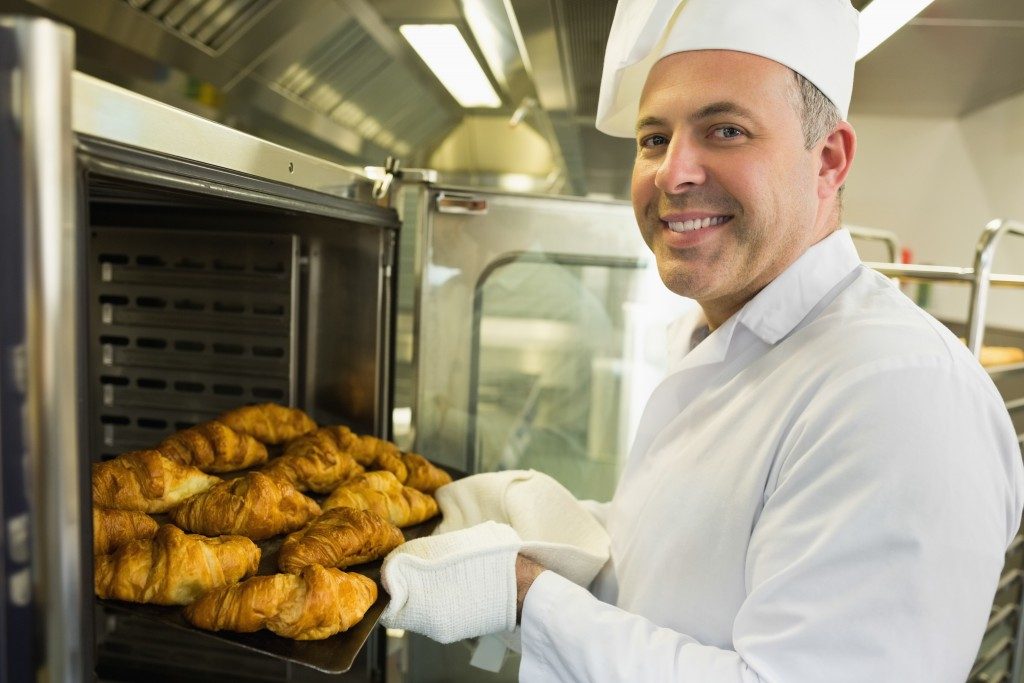No celebration is considered complete unless there is a baked good of some sort. Birthdays require cake, Fourth of July parties must have apple pie, and few people can imagine celebrating Thanksgiving without some form of pie or tart filled to the bursting with pumpkin goodness.
You can easily imagine that any hobby baker worth their salt can quit their day job and open up a quaint little artisan bakery. Well, here’s the thing. Pleasing crowds at your local bake sale and pleasing crowds of customers day in and day out, seven days a week, are two different things.
That isn’t to say that it can’t be done, though. It’s just not as easy as baking a few dozen cupcakes in your specialty flavor and showing up to sell them a couple of times a year. But if you’re determined, you might have a pretty good shot at becoming the beloved local bakery everyone in the neighborhood loves.
Before you move a ton of industrial bakery equipment into your home kitchen, you might want to put a lot of serious effort into research. These are the five important topics we recommend that you mull over before you sign that lease for your new bakery:
Know yourself
Before you even start, ask yourself why you’re doing this. If it’s because you’re sick of the long hours in the office, know that starting a small business has demands far greater than being an employee. But if it’s because you’ve always dreamed of opening a small bakeshop, spent countless hours of your free time honing your baking skills, and dreamed of being surrounded by retail bakery equipment day in and day out, well, then maybe opening up your shop is the natural path for you.
Be certain of your financial capabilities and limitations for setting up a shop. Retail baking equipment isn’t cheap, and neither is a lease, hiring staff, or the cost of living. The ingredients are also not cheap. You will have to pony up for all these until you begin to turn a profit. It’s great if you have savings, but it’s better if you look for investors.
Know your market
Looking for investors can lead us to knowing who is going to buy your products. Knowing this helps you decide on your product line, your selling points, and how you’ll make the potential pitch to investors.
Take the time to study your market. What do they want and need? How old are they, and how much are they willing to spend on baked goods? Is there a specialty in your state that you could translate into a baked good spectacularly well? Is the area filled with picturesque spots that attract wedding parties year-round?
Know your product
A family recipe is great, but it might have to undergo a little tweaking to be both mass-produced and profitable. You might also need to adjust the equipment you bake with. Will your single-batch recipe that does so well in a standard mixer become overbeaten in an industrial spiral mixer? Can you compensate for the effect? You can probably do this in the very early stages of your business, but prepare to have thought it out beforehand.
Know your competition

It’s a rough world out there in the baking industry, and it takes a tough cookie to survive. You’d do well to take in the competition before you formally enter the arena. Bakers are generally still a nice lot, and if you ask nicely, they will tell you how they started their own businesses. Study the best practices you can find and adopt them. You might even find that you can improve on some of their practices that would work better for you.
Opening your own business can be both fulfilling and profitable, but rushing in blind can cost you. So do yourself and your future business a favor. Do your homework.



